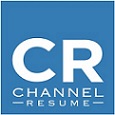 Writing a good cover letter doesn’t have to be a daunting task. Nor does it have to be a lengthy treatise cataloguing what you did in your former jobs (that’s what your resume is for). The cover letter is meant to be a brief note to the reader – preliminary remarks, if you will – before the reader starts going through your resume. Think of it as something similar to the Foreword section in a novel.
Writing a good cover letter doesn’t have to be a daunting task. Nor does it have to be a lengthy treatise cataloguing what you did in your former jobs (that’s what your resume is for). The cover letter is meant to be a brief note to the reader – preliminary remarks, if you will – before the reader starts going through your resume. Think of it as something similar to the Foreword section in a novel.
I always tell my clients that your cover letter shouldn’t simply re-hash what has already been said in your resume. Instead, use the cover letter as an opportunity to talk about something that hasn’t been properly addressed by your resume, or was not stated at all. This could include talking about any or all of the following:
1. What are your proudest career achievements?
a. This could be about a job promotion, or a series of promotions, and what you did to earn them.
b. How you completed a project with minimal resources, or within an impossible dead line. How did you manage to do this? What were the results of the project? What did you learn from the experience?
c. How you stepped into a new job role with minimal supervision. How did you manage? What did you learn?
2. Why should the employer hire you, from a list of similarly-qualified candidates?
Here’s your chance to write your very own “sales brochure” by focusing on the following points:
a. What do you do better than most other people in your line of work?
b. What approach would you take to alleviate your employer’s biggest problems?
c. How would you help your employer meet its objectives?
d. What set of skills or qualifications makes you most suitable for this position?
_________________________________________________
The cover letter is meant to be a brief note to the reader – preliminary remarks, if you will – before the reader starts going through your resume.
__________________________________________________
3. Is there something in your resume that deserves to be emphasized, or requires an explanation?
This might include the following:
a. Perhaps there are courses or studies that you’ve taken which apply directly to the advertised role.
b. You might want to mention how you completed a degree in less time than normal.
c. You can draw attention to a particular job position that you previously held, and how the experience will help you in this role.
d. Discuss how you were given more job responsibilities outside of your official duties, or filled in for someone in your department, while your employer was trying to hire additional head count for an understaffed department.
e. If you’ve spent only one year or less at a job, perhaps there are extenuating circumstances – e.g. your department was downsized; your spouse was relocated and you followed her; you were headhunted to a higher position at another company.
4. Do you share a special or unique connection with the employer?
a. Perhaps you know someone who has worked at the company for a while, and has said good things about the employer.
b. The employer is a non-profit organization that advocates a certain cause, which you personally support, or have supported in some form.
c. You’ve had prior dealings with the company (as a customer, supplier, affiliate, etc.), and your experience has been positive.
Keep your cover letter concise and to-the-point. There is no fixed word limit, but try to keep your cover letter down to a page. Watch your grammar, spell-check the document, and proofread twice. The employer is trying to get a sense of who you are as a person, and the only thing that she can go on is your cover letter and resume. So put your best foot forward by submitting a sincere, well-written cover letter.







